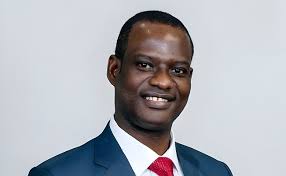Tax Revolution : Oyedele Unveils Bold Reforms To Empower "Tax Revolution: Oyedele Unveils Bold Reforms to Empower Nigerian Youths And Ease Living Cost
"Tax Revolution: Oyedele Unveils Bold Reforms to Empower Nigerian Youths and Ease Living Costs"
By Achimi Muktar
The Chairman of the Presidential Fiscal Policy and Tax Reform Committee, Mr. Taiwo Oyedele, has detailed the transformative benefits of the Federal Government’s proposed tax reform bills, currently under review by the National Assembly. Speaking via his X handle, @taiwooyedele, Oyedele revealed how the reforms aim to position Nigeria as a competitive player in the global economy while alleviating financial pressures on its citizens.
Empowering Nigerian Youths in the Digital Space
A standout feature of the reforms is their focus on empowering Nigerian youths to thrive in the digital economy. According to Oyedele, amendments to income tax laws will encourage remote work opportunities, enabling Nigerians to participate in the global business process outsourcing (BPO) market without relocating.
Relief for Workers and Households
The reforms prioritize easing the cost of living for ordinary Nigerians through measures such as:
Tax Exemptions for Minimum Wage Earners: Workers earning minimum wage will no longer pay personal income tax (PAYE). Over 90% of private and public sector workers will also experience reduced tax burdens.
Zero VAT on Essentials: Food, education, healthcare, rent, public transportation, fuel products, and renewable energy will be VAT-exempt, benefiting low-income households who spend nearly 100% of their income on these essentials.
Boosting Business Competitiveness
Businesses are set to gain significantly from the reforms, with provisions aimed at fostering growth and reducing operational costs:
Corporate Tax Reduction: The corporate income tax rate will drop from 30% to 25% over two years. Earmarked taxes on companies will be replaced by a harmonized, single levy at a reduced rate.
Elimination of Nuisance Taxes: Over 50 taxes and levies deemed burdensome will be repealed, streamlining compliance and improving the ease of doing business.
VAT Credits for Investments: Businesses can claim input VAT credits on assets and services, encouraging investment and reducing production costs.
Progressive Taxation for Fairness
Oyedele emphasized that the reforms aim to protect the poor while promoting equity:
Redesigned Tax Brackets: Personal income tax rates, VAT, and capital gains tax will be restructured to ensure higher earners contribute more while shielding low-income earners.
Equitable VAT Revenue Sharing: A new system will ensure states without corporate headquarters receive fair VAT revenue allocations based on their economic contributions.
New Initiatives for Oversight and Sustainability
The reforms propose the introduction of a Tax Ombudsman, tasked with advocating for taxpayers and ensuring a more transparent system. Additionally, a National Fiscal Policy will provide a framework for fair taxation, responsible borrowing, and sustainable government spending.
Public Engagement Encouraged
Despite the National Economic Council (NEC) recommending the withdrawal of the bills for wider consultation, President Bola Tinubu has insisted they remain with the National Assembly, urging Nigerians to make their voices heard during public hearings.
A Vision for Economic Growth
Oyedele described the reforms as a comprehensive blueprint to drive Nigeria’s economic growth, reduce inequality, and modernize its tax system. By prioritizing youth empowerment, fair taxation, and business-friendly policies, the government aims to create a prosperous and inclusive future for all Nigerians.
As these reforms move through legislative processes, the spotlight will remain on the National Assembly to ensure that the bills reflect the aspirations of the Nigerian people.





















